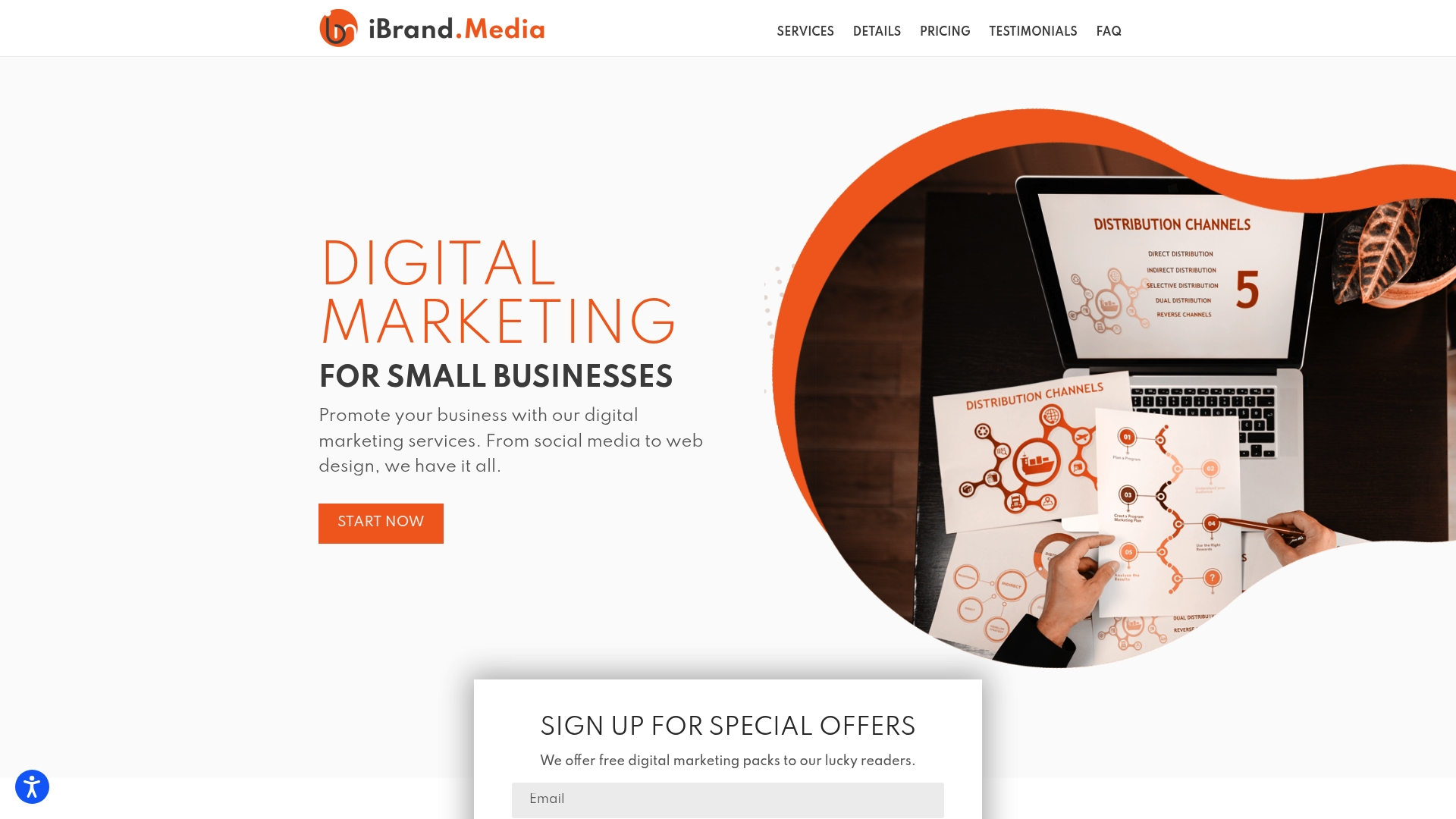Content marketing sounds like standard business advice but research shows that businesses using content marketing can see higher engagement and loyalty than those who do not. Most people think content marketing is just about publishing blog posts and hoping someone reads them. The truth is content marketing is actually about building real trust and turning your brand into a resource people depend on.
Table of Contents
- What Is Content Marketing And Why Does It Matter?
- The Core Principles Behind Effective Content Marketing
- How Content Marketing Enhances Customer Engagement
- Key Metrics To Measure Content Marketing Success
- Real-World Examples Of Content Marketing In Action
Quick Summary
| Takeaway | Explanation |
|---|---|
| Content marketing builds trust with audiences | By providing valuable and informative content, brands position themselves as credible sources, fostering long-term relationships with customers. |
| Identify specific audience needs | Understanding your audience’s pain points enables you to create targeted content that resonates, increasing engagement and loyalty. |
| Quality content drives engagement | Developing deep, meaningful insights in your content encourages users to connect emotionally and participate actively with your brand. |
| Track performance metrics diligently | Analyzing metrics like engagement and conversion rates helps businesses understand content effectiveness and make data-driven improvements. |
| Successful content includes storytelling | Using narratives in content makes it more relatable, enhancing emotional connections and keeping audiences engaged with your brand. |
What is Content Marketing and Why Does It Matter?
Content marketing represents a strategic approach to creating and distributing valuable, relevant, and consistent content that attracts and retains a clearly defined audience. Unlike traditional advertising that interrupts consumers, content marketing focuses on providing genuine value through informative, engaging materials that solve problems and answer questions.
The Core Purpose of Content Marketing
At its heart, content marketing aims to build trust and establish your brand as an authoritative source of information.
Learn more about content marketing principles reveals that businesses using strategic content can significantly improve customer engagement and loyalty. The goal is not just to sell, but to educate, inform, and create meaningful connections with potential customers.

Key characteristics of effective content marketing include:
The following table summarizes the core characteristics that define effective content marketing, helping readers quickly understand what sets it apart from traditional advertising models.
| Characteristic | Description |
|---|---|
| Provides genuine value | Content aims to inform, educate, or solve problems rather than simply promote products or services |
| Addresses specific customer pain points | Focuses on challenges and questions relevant to the audience |
| Consistency in quality and delivery | Content is regularly produced and maintains a high standard |
| Builds long-term relationships | Emphasizes engagement and customer loyalty over one-time transactions |
| Positions brand as an authority | Establishes the brand as a trusted, expert resource within its industry |
- Providing genuine value to the audience
- Addressing specific customer pain points
- Creating consistent, high-quality information
- Building long-term relationships
Why Content Marketing Matters for Businesses
According to research from industry experts, content marketing offers substantial benefits for organizations seeking to establish digital presence. Small businesses and entrepreneurs can leverage content marketing to compete with larger competitors by demonstrating expertise, building credibility, and connecting directly with their target audience.
Businesses that implement content marketing strategies often experience significant advantages, including improved search engine rankings, increased website traffic, and higher conversion rates. By consistently producing valuable content, companies transform from mere service providers to trusted resources in their industry.

The Core Principles Behind Effective Content Marketing
Content marketing requires a strategic framework that goes beyond simple information sharing. Successful content marketing demands a systematic approach that consistently delivers value, engages audiences, and supports business objectives.
Understanding Strategic Content Creation
Explore our guide on content ideas for small businesses highlights the importance of purposeful content development. Effective content marketing begins with a deep understanding of audience needs, interests, and challenges. Businesses must craft content that resonates personally with their target demographic, addressing specific pain points and providing actionable insights.
Key strategic elements include:
- Identifying precise audience segments
- Mapping content to customer journey stages
- Developing a consistent brand voice
- Creating content with clear value propositions
Principles of High-Quality Content Development
According to research from the University of Washington, successful content marketing hinges on user-centered design and strategic planning. The most effective content goes beyond surface-level information, offering deep, meaningful insights that genuinely help the audience solve problems or understand complex topics.
Quality content requires a multifaceted approach that integrates research, creativity, and strategic thinking. Businesses must focus on creating materials that are not just informative, but also engaging, trustworthy, and aligned with their brand’s core messaging. This means developing content that speaks directly to audience needs while maintaining authenticity and providing unique perspectives that differentiate the brand from competitors.
How Content Marketing Enhances Customer Engagement
Content marketing transforms traditional communication strategies by creating meaningful connections between businesses and their target audiences. Instead of pushing sales messages, it focuses on building relationships through valuable, relevant, and consistent information that genuinely helps customers.
Creating Meaningful Audience Connections
Learn how to engage customers online demonstrates that successful content marketing goes beyond simple information sharing. Effective engagement requires understanding customer motivations, pain points, and aspirations. By crafting content that speaks directly to audience needs, businesses can establish trust and credibility.
Key engagement strategies include:
- Addressing specific customer challenges
- Providing actionable and practical insights
- Using storytelling to create emotional connections
- Demonstrating genuine understanding of audience experiences
The Science of Customer Interaction
According to research from Stanford Graduate School of Business, content that incorporates emotional elements and brand personality significantly increases consumer engagement. Successful content marketing isn’t just about information delivery, but about creating experiences that resonate with audiences.
This means developing materials that are not just informative, but also entertaining, inspiring, and personally relevant. By focusing on the human element and creating content that feels like a conversation rather than a sales pitch, businesses can transform passive readers into active, engaged community members who feel genuinely connected to the brand.
Key Metrics to Measure Content Marketing Success
Successful content marketing requires more than creating compelling materials. Businesses must systematically track performance to understand the real impact of their content strategy and make data-driven improvements.
Understanding Performance Indicators
Learn about social media marketing strategies reveals that measuring content marketing effectiveness involves tracking multiple interconnected metrics. Performance tracking goes beyond simple view counts, requiring a comprehensive approach that evaluates engagement, conversion, and long-term business impact.
Key performance metrics include:
This table outlines and explains the key performance metrics businesses should monitor to evaluate the effectiveness of their content marketing strategies.
| Metric | What It Measures | Why It Matters |
|---|---|---|
| Website traffic volume & sources | Number of visitors and where they come from | Reveals reach and effectiveness of distribution efforts |
| Engagement rates | Time on page, social shares, comments | Indicates content relevance and audience interest |
| Conversion rates | Users taking desired actions (sign-ups, sales) | Direct link between content and business outcomes |
| Search engine ranking | Website’s position in search results | Higher rankings drive organic visibility and traffic |
| Lead generation & quality | Number and value of leads from content efforts | Shows content’s impact on attracting new customers |
- Website traffic volume and sources
- Engagement rates (time on page, social shares)
- Conversion rates from content
- Search engine ranking improvements
- Lead generation and quality
Analytical Approaches to Content Evaluation
According to research from European Science Publications, businesses must develop a nuanced approach to content marketing measurement. Effective metric analysis requires understanding the relationship between content efforts and organizational objectives.
This means looking beyond surface-level statistics and diving deeper into how content contributes to broader business goals. Successful measurement involves creating a holistic view that connects content performance with revenue generation, brand awareness, and customer relationship development. By implementing robust tracking mechanisms, businesses can transform content from a cost center into a strategic asset that demonstrably drives growth and engagement.
Real-World Examples of Content Marketing in Action
Content marketing transforms abstract strategies into tangible business results. By examining successful implementations, businesses can understand how compelling content drives engagement, builds trust, and generates meaningful connections with audiences.
Small Business Content Success Stories
Discover tips for creating engaging social content demonstrates the power of strategic content approaches. Effective content marketing transcends industry boundaries, showing that thoughtful, targeted communication can work for businesses of all sizes.
Key characteristics of successful content marketing include:
- Solving specific customer problems
- Presenting information in unique, memorable formats
- Demonstrating genuine industry expertise
- Building emotional connections with audiences
- Providing actionable, practical insights
Practical Implementation Strategies
According to case studies from Dartmouth’s Center for Digital Strategies, successful content marketing requires more than just creating materials. The most effective approaches integrate storytelling, data-driven insights, and a deep understanding of audience needs.
Real-world examples reveal that businesses can transform content marketing from a theoretical concept into a powerful growth tool. By developing materials that genuinely help customers, address their challenges, and provide unique perspectives, companies can differentiate themselves in competitive markets. The most successful content marketing strategies go beyond selling products, instead focusing on building long-term relationships and establishing brands as trusted resources in their respective industries.
Ready to Put Content Marketing into Action for Your Small Business?
Starting your content marketing journey can feel overwhelming when you are new to strategies like building trust through value-driven information and making your brand more visible online. Many small business owners struggle with creating consistent and engaging content or simply do not know where to begin. If you want to move beyond theory and actually see your content efforts turn into more website visits and real customers, you need practical support tailored for beginners.

At ibrand.media, we offer affordable digital marketing solutions designed for small and growing businesses just like yours. Our team can help you overcome the biggest hurdles in content marketing, from choosing topics your audience cares about to tracking what actually works. If you are curious how to start applying content marketing principles and want to see results quickly, visit our Uncategorized | Ibrandmedia section for ideas or head straight to our website. Take the first step to build your brand authority and get your voice heard online. Contact us today at ibrand.media and let us help you turn your content into new customers right now.
Frequently Asked Questions
What is content marketing?
Content marketing is a strategic approach focused on creating and distributing valuable, relevant content to attract and retain a defined audience, rather than pushing traditional advertising.
Why is content marketing important for businesses?
Content marketing helps businesses build trust, establish their brand as an authority, improve customer engagement, and achieve better search engine rankings, which can lead to increased website traffic and higher conversion rates.
How do I create effective content for marketing?
To create effective content, you should understand your audience’s needs, address their specific challenges, maintain a consistent brand voice, and ensure that your content provides genuine value through actionable insights.
What metrics should I track to measure the success of content marketing?
Key metrics to track include website traffic volume and sources, engagement rates (like time on page and social shares), conversion rates, search engine ranking improvements, and lead generation quality.
Recommended
- Content Marketing Explained: Understanding Its Core Principles | Ibrandmedia
- what is digital marketing | Ibrandmedia
- 8 Content Ideas for Small Business Growth | Ibrandmedia
- Understanding Email Marketing Basics for Small Businesses | Ibrandmedia
- What is Content Marketing? Understanding Its Importance

Recent Comments